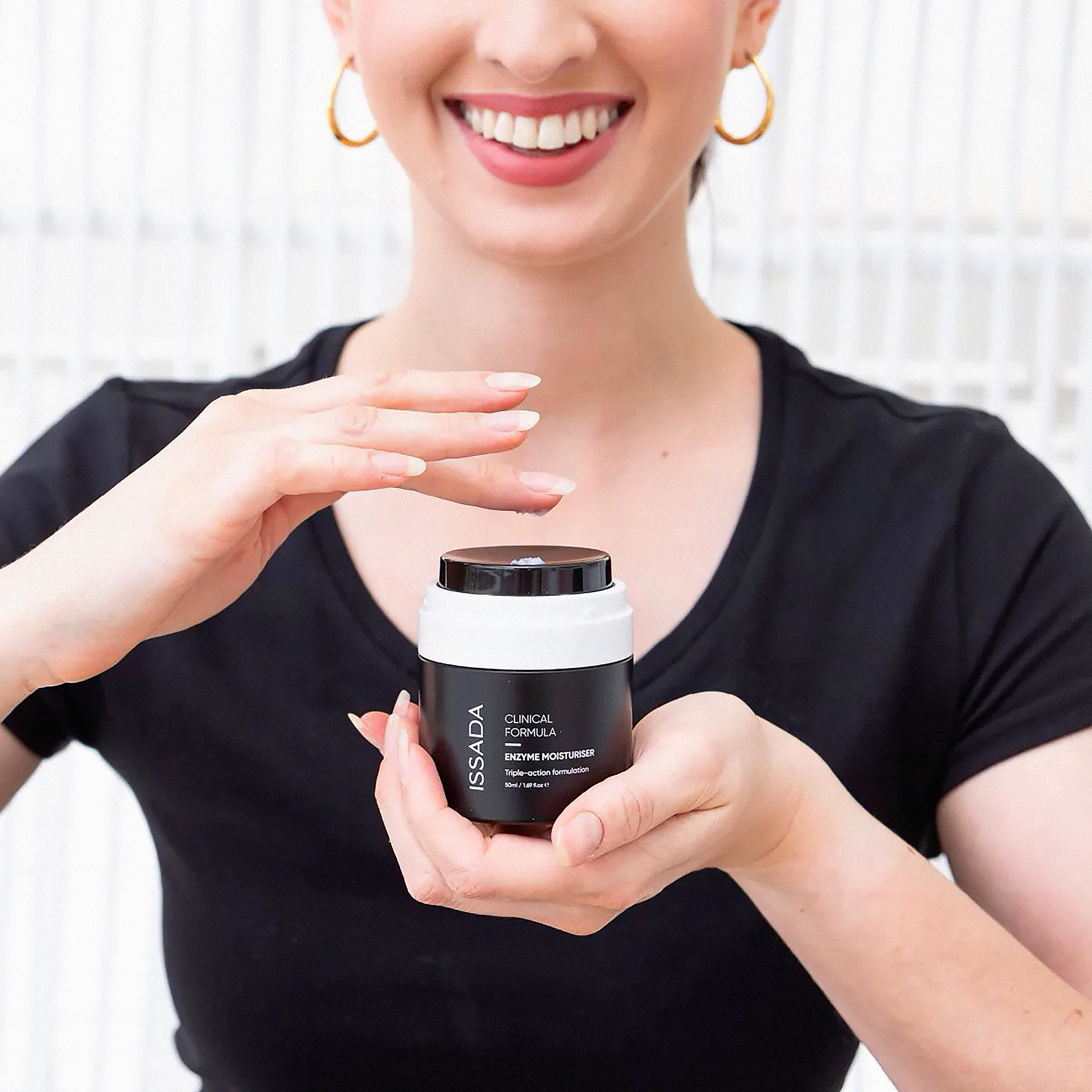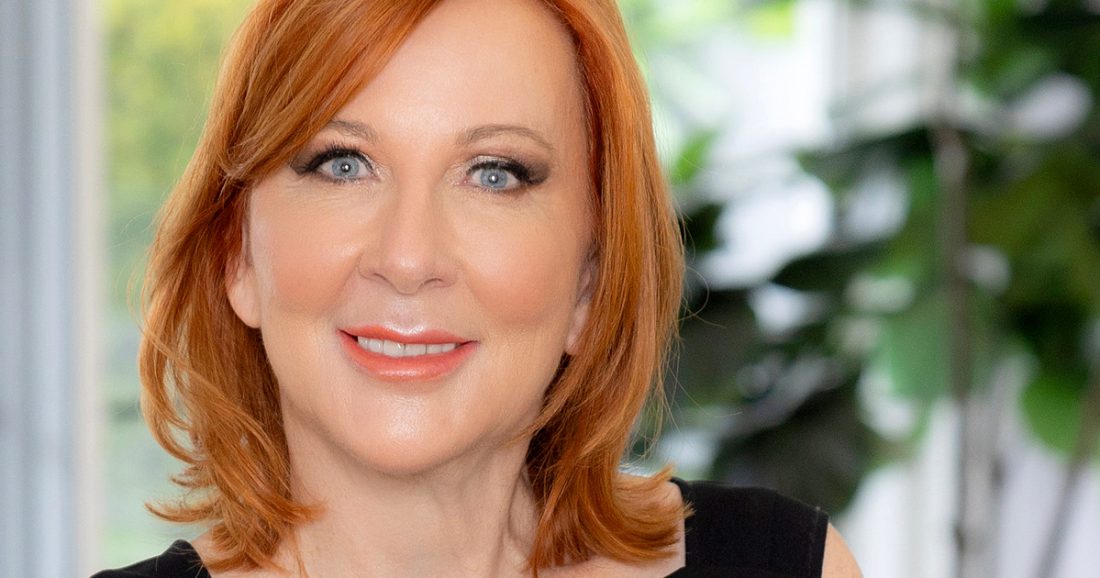When Deb Farnworth-Wood and her husband Shaun moved from the United Kingdom to Australia in 2007, their plan was to semi-retire and spend most days relaxing on the beach sipping cocktails and winding down, while keeping a part-time eye on Australian Skin Clinics (ASC), the business she’d just bought.
After Farnworth-Wood’s blisteringly successful career building and running a series of health businesses while her husband worked hard as a social worker and property renovator, they’d both earned the right to embrace a more sedate pace of life.
She was 43 and he was 39.
But no-one who knew Farnworth-Wood thought for a second she would do anything other than continue the extraordinary story that had made her one of the most respected entrepreneurs in the health and beauty space.

“I just couldn’t stop myself. I’d thought it was a pretty small business, but it turned out that, for Australia, it was quite big.”
In the United Kingdom, she’d been the first non-doctor to be made a partner in a medical practice. Her pharmacy business, which she owned with her general practitioner partners, became the first to be owned by non-pharmacists and opened the United Kingdom’s first drive-through pharmacy.
But as she was settling into life on Queensland’s Gold Coast, something unexpected happened.
“To be honest, I’d only bought ASC so I could get the visa to move here,” she tells The CEO Magazine. “It already had a manager so I thought I would leave it to her to continue running, but I soon realized that, for me, it was like buying a little sweet shop!
“I completely fell in love with it and with the whole industry. I just couldn’t stop myself. I’d thought it was a pretty small business, but it turned out that, for Australia, it was quite big.”
And it was about to get a lot bigger.
Thriving operation
For the first few years, Farnworth-Wood learned everything there was to learn about the industry and set to work improving systems. Things began to change in 2011, when Farnworth-Wood launched the first franchise clinic. After just five more years, the company had launched 60 thriving franchised clinics and earned Farnworth-Wood the prestigious title of Gold Coast’s Woman in Business of the Year.
When she sold the business in 2019 for an undisclosed sum, it was one of Australia’s biggest beauty therapy franchises with a turnover of US$48.6 million. Two years later, it was sold again for US$33.8 million.
By then, Farnworth-Wood had acquired the boutique makeup range ISSADA and was already working her magic to grow it exponentially and expand into international markets.

“My forte is seeing the opportunities that others miss, knowing what success looks like and how to get there.”
Her starting point was using her vast experience to develop a groundbreaking Cosmeceutical Skincare range.
“The inspiration came from what I’d learned at ASC,” she recalls. “We treated people with every skin color and type and had customers everywhere from hot, tropical regions to cities like Melbourne and Sydney where the wind can be biting cold. Our products had to accommodate them all.”
That was also true for ISSADA, but she wanted to push the quality threshold to still greater heights. In short, every product had to earn the right to join the portfolio.
“I was really aware that most skincare ranges have one or two hero products and the rest are just fillers or supplementary,” she says. “But I wanted all of ours to be superheroes. If it wasn’t amazing, we weren’t going to launch it.”
Rigorous testing
Farnworth-Wood had a secret weapon to guarantee the highest quality benchmarks: her son, Jacques, who qualified as a cosmetic chemist and shares his mother’s love of the industry.
“He’s always reading scientific papers for fun, so he’s a real nerd,” she says with a smile. “But he comes up with all these concepts and then makes up to 40 versions to test which ingredients work and which ones don’t work before he’s satisfied that it’s just right.
“All our products are tested first by staff, friends and friendly, and when we are almost ready to launch we test them in the original ASC clinic which I rebranded and retained when I sold the group. I have a queue of clients keen to try the products, but we also test them with advanced aesthetic technologies.”
Her team knows that nothing goes to market unless it meets the stringent quality benchmarks that have defined her career.

“Scaling a startup is a challenge. There comes a time when people feel they’ve lost contact with the Founder.”
“As a leader, I’m very exacting, which can make me difficult to work for,” Farnworth-Wood admits. “But equally, I never pretend I know it all and I’m always willing to listen to other people’s ideas and take them on board. My forte is seeing the opportunities that others miss, knowing what success looks like and how to get there.”
That’s certainly true of her overseas expansion, which began soon after she’d bought the firm. She already has stockists in New Zealand, the United Arab Emirates and Fiji and is poised to launch in four new significant markets imminently.
“I can’t yet tell you which ones, but it will be huge for us,” she says. “The distributor I’m working with is well established and operates like a well-oiled machine. I really couldn’t have found one of a higher caliber.
“Every successful business reaches a tipping point and ISSADA is following the trajectory of ASC. We invested the time in preparing the business to scale up and the work is now paying dividends.”
Hands-on approach
Such meteoric growth stems from successfully managing the often awkward transition from ambitious startup to an established major player.
“Scaling a startup is challenging and fun. You start off with ‘all hands on deck’ because there is so much to do,” Farnworth-Wood notes. “In the early days it was common to see me on the loading bay helping to pack boxes or check off deliveries. I see that as being essential to really understanding the business, but as systems are developed, the roles become less chaotic and more structured.
“Yet there comes a time when people feel they’ve lost contact with the Founder. There’s this uncomfortable pause where the values don’t change, but the individual roles do. Personally, I found juggling that hard, and I’m always mindful about how change is affecting those around me.”

“This is definitely my last gig. It really is. I’m 61 this year. My husband might kill me if I don’t retire!”
And her relentless drive to devise new ways to succeed means the pace of change isn’t about to slow. However, the effect she has on one person in particular means she isn’t looking for another business challenge further down the road.
“This is definitely my last gig. It really is,” she says. “I’m 61 this year. My husband might kill me if I don’t retire!”




